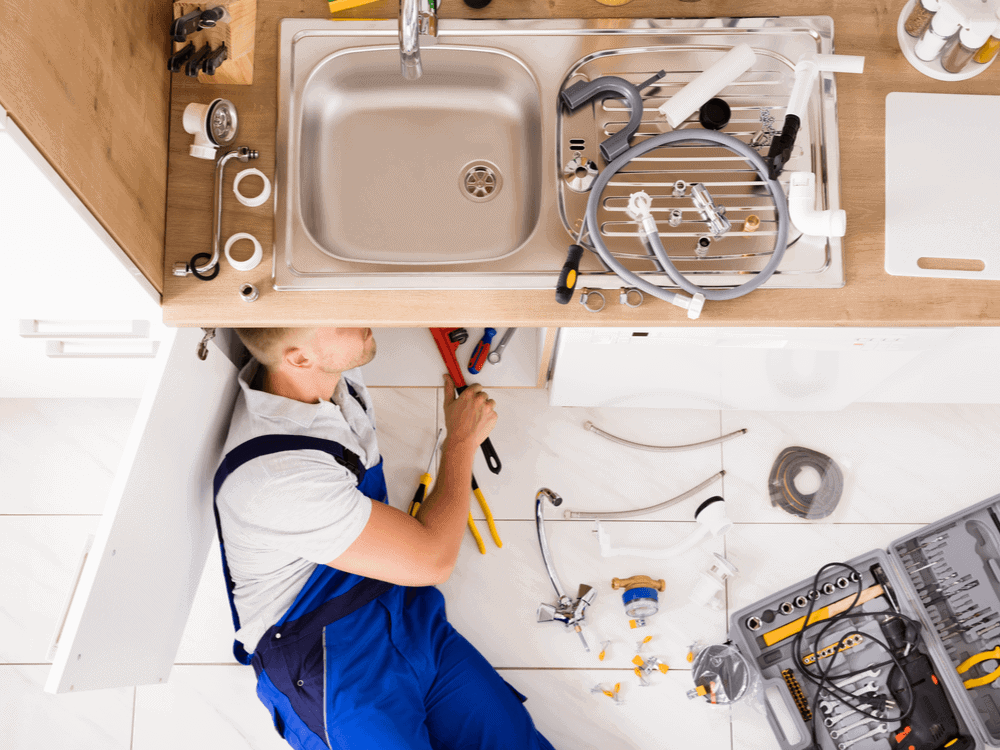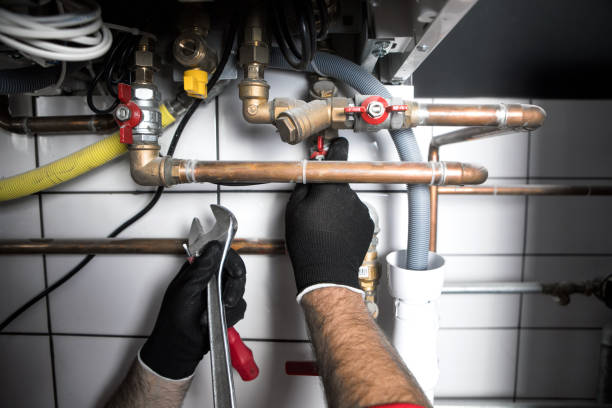Anatomy of Your House's Plumbing System: How It Matters
Anatomy of Your House's Plumbing System: How It Matters
Blog Article
Were you on the lookout for answers around The Inner Workings of Your Home's Plumbing?

Understanding just how your home's pipes system works is essential for every single homeowner. From supplying tidy water for drinking, cooking, and showering to safely getting rid of wastewater, a well-maintained plumbing system is essential for your family members's health and convenience. In this detailed guide, we'll discover the complex network that makes up your home's pipes and deal tips on upkeep, upgrades, and managing usual issues.
Intro
Your home's plumbing system is more than simply a network of pipes; it's a complicated system that guarantees you have accessibility to clean water and effective wastewater removal. Recognizing its elements and just how they work together can assist you prevent expensive repairs and make certain everything runs smoothly.
Standard Components of a Pipes System
Pipes and Tubes
At the heart of your plumbing system are the pipelines and tubing that carry water throughout your home. These can be made from various products such as copper, PVC, or PEX, each with its advantages in regards to resilience and cost-effectiveness.
Fixtures: Sinks, Toilets, Showers, and so on.
Components like sinks, toilets, showers, and bath tubs are where water is used in your house. Understanding how these components attach to the pipes system helps in detecting problems and preparing upgrades.
Shutoffs and Shut-off Points
Shutoffs regulate the flow of water in your plumbing system. Shut-off valves are important during emergencies or when you require to make repairs, enabling you to isolate parts of the system without disrupting water flow to the entire residence.
Supply Of Water System
Key Water Line
The major water line connects your home to the community water or a private well. It's where water enters your home and is distributed to various fixtures.
Water Meter and Pressure Regulator
The water meter steps your water usage, while a pressure regulator ensures that water flows at a safe pressure throughout your home's plumbing system, preventing damage to pipes and components.
Cold Water vs. Warm water Lines
Recognizing the difference between cold water lines, which supply water directly from the main, and warm water lines, which lug heated water from the water heater, assists in fixing and planning for upgrades.
Drainage System
Drain Pipeline and Traps
Drain pipes carry wastewater away from sinks, showers, and toilets to the sewage system or septic system. Catches stop drain gases from entering your home and likewise trap particles that might trigger blockages.
Ventilation Pipes
Air flow pipes permit air right into the water drainage system, protecting against suction that can reduce drainage and cause catches to vacant. Correct air flow is necessary for keeping the honesty of your pipes system.
Value of Appropriate Water Drainage
Making sure correct drainage avoids backups and water damage. Routinely cleansing drains pipes and keeping catches can prevent costly repairs and expand the life of your pipes system.
Water Heater
Kinds Of Water Heaters
Hot water heater can be tankless or typical tank-style. Tankless heating units warmth water as needed, while storage tanks keep heated water for prompt use.
Exactly How Water Heaters Connect to the Pipes System
Recognizing exactly how water heaters connect to both the cold water supply and warm water distribution lines aids in diagnosing concerns like not enough hot water or leaks.
Upkeep Tips for Water Heaters
Consistently purging your water heater to eliminate sediment, examining the temperature level settings, and inspecting for leakages can expand its lifespan and boost power efficiency.
Usual Pipes Issues
Leakages and Their Causes
Leakages can happen as a result of maturing pipes, loosened fittings, or high water pressure. Resolving leaks without delay prevents water damages and mold development.
Blockages and Blockages
Obstructions in drains and bathrooms are usually triggered by purging non-flushable items or an accumulation of oil and hair. Using drainpipe displays and bearing in mind what drops your drains can stop obstructions.
Signs of Pipes Issues to Expect
Low water stress, slow drains pipes, foul odors, or unusually high water bills are indications of possible plumbing issues that ought to be attended to immediately.
Pipes Upkeep Tips
Regular Evaluations and Checks
Schedule annual plumbing assessments to capture issues early. Search for indications of leakages, deterioration, or mineral buildup in faucets and showerheads.
DIY Maintenance Tasks
Basic tasks like cleansing tap aerators, looking for bathroom leakages making use of color tablet computers, or insulating subjected pipelines in cold climates can protect against significant plumbing issues.
When to Call an Expert Plumbing Professional
Know when a pipes concern requires expert experience. Trying complex repair work without correct knowledge can result in more damage and greater fixing costs.
Upgrading Your Plumbing System
Reasons for Updating
Updating to water-efficient components or changing old pipes can improve water high quality, decrease water expenses, and raise the worth of your home.
Modern Plumbing Technologies and Their Benefits
Discover technologies like wise leak detectors, water-saving bathrooms, and energy-efficient hot water heater that can conserve cash and reduce environmental impact.
Expense Factors To Consider and ROI
Compute the ahead of time expenses versus lasting cost savings when taking into consideration pipes upgrades. Lots of upgrades spend for themselves via decreased utility bills and fewer repair work.
Environmental Effect and Conservation
Water-Saving Components and Home Appliances
Setting up low-flow taps, showerheads, and commodes can dramatically minimize water use without compromising efficiency.
Tips for Lowering Water Use
Basic practices like repairing leaks quickly, taking shorter showers, and running full loads of laundry and dishes can conserve water and reduced your energy costs.
Eco-Friendly Pipes Options
Think about lasting pipes products like bamboo for flooring, which is durable and environment-friendly, or recycled glass for countertops.
Emergency situation Readiness
Steps to Take During a Plumbing Emergency situation
Know where your shut-off shutoffs lie and exactly how to shut off the supply of water in case of a burst pipeline or significant leak.
Importance of Having Emergency Get In Touches With Useful
Maintain call info for regional plumbings or emergency solutions conveniently offered for quick response throughout a pipes crisis.
DIY Emergency Fixes (When Relevant).
Short-term fixes like making use of air duct tape to patch a dripping pipeline or placing a bucket under a trickling faucet can minimize damages until a specialist plumbing professional arrives.
Verdict.
Comprehending the anatomy of your home's pipes system equips you to maintain it properly, conserving time and money on fixings. By complying with regular upkeep routines and remaining notified about modern-day plumbing modern technologies, you can guarantee your plumbing system runs effectively for years to find.
HOW YOUR PLUMBING SYSTEM WORKS
Which Pipes Do What?
Blue lines = fresh water supply entering the building
Red lines = hot water supply entering the building
Grey lines = pipes carrying waste away from the building and venting pipes carrying gases away from the building (through the roof)
YOUR MAIN PLUMBING SYSTEMS
There are two main plumbing systems that support your home s basic plumbing needs one that brings clean water into your home, and one that sends dirty water away from your home. Connected to the toilet, bath, shower, and other faucets in your home, these two systems keep your water flowing in the right directions.
ACCESSING FRESH WATER
Fresh and clean water is brought into your home through the main water supply line . Filtered through one pipe, this water is pressured to flow into the various fixtures in your home at any given time.
This water can be sourced from a well located on your property, a pond or river (mostly cottages), or, as in most cases, from the city s municipal water treatment centre. However, it is important to note that water that is untreated, such as the water siphoned from ponds or rivers, may not be safe to drink. Personal water supplies always need to be treated for hardness and contaminants before consumed.
MUNICIPAL WATER SUPPLIES
Improve taste and odour
Remove sediment
Eliminate hardness
Reduce chlorine
COLD WATER SUPPLY VS. HOT WATER SUPPLY
Cold water flows into your home or building through the service line, which then distributes hot or cold water to your fixtures. This line is most commonly run through a central column that runs floor to floor. Hot water runs in short and straight pipes as the longer the pipeline, the more heat that will be lost in the transfer. Having shorter pipes also allows residents to access hot water more quickly.
WASTE WATER SYSTEM
Your wastewater system is divided into two parts pipes that send wastewater away from your home and venting pipes that send sewer gas away from your home. Sewage water travels through pipes that flush the water and waste towards local sewers that are operated and managed by your city or town. Most sewer systems rely on gravity to move the wastewater to where it needs to go.
The further away from your toilet or sink, the larger wastewater pipes become. This allows for waste to be disposed of from various parts of your home or business at once without pipe blockages. The angle and flow of these pipes are also essential for keeping your waste pipes clear of build up.
https://harrisplumbing.ca/how-your-home-plumbing-system-works/

HOW YOUR PLUMBING SYSTEM WORKS
Which Pipes Do What?
YOUR MAIN PLUMBING SYSTEMS
There are two main plumbing systems that support your home s basic plumbing needs one that brings clean water into your home, and one that sends dirty water away from your home. Connected to the toilet, bath, shower, and other faucets in your home, these two systems keep your water flowing in the right directions.
ACCESSING FRESH WATER
Fresh and clean water is brought into your home through the main water supply line . Filtered through one pipe, this water is pressured to flow into the various fixtures in your home at any given time.
This water can be sourced from a well located on your property, a pond or river (mostly cottages), or, as in most cases, from the city s municipal water treatment centre. However, it is important to note that water that is untreated, such as the water siphoned from ponds or rivers, may not be safe to drink. Personal water supplies always need to be treated for hardness and contaminants before consumed.
MUNICIPAL WATER SUPPLIES
COLD WATER SUPPLY VS. HOT WATER SUPPLY
Cold water flows into your home or building through the service line, which then distributes hot or cold water to your fixtures. This line is most commonly run through a central column that runs floor to floor. Hot water runs in short and straight pipes as the longer the pipeline, the more heat that will be lost in the transfer. Having shorter pipes also allows residents to access hot water more quickly.
WASTE WATER SYSTEM
Your wastewater system is divided into two parts pipes that send wastewater away from your home and venting pipes that send sewer gas away from your home. Sewage water travels through pipes that flush the water and waste towards local sewers that are operated and managed by your city or town. Most sewer systems rely on gravity to move the wastewater to where it needs to go.
The further away from your toilet or sink, the larger wastewater pipes become. This allows for waste to be disposed of from various parts of your home or business at once without pipe blockages. The angle and flow of these pipes are also essential for keeping your waste pipes clear of build up.
https://harrisplumbing.ca/how-your-home-plumbing-system-works/
I have been very intrigued by The Inner Workings of Your Home's Plumbing and I am hoping you liked the entire article. Are you aware of another individual who is intrigued by the topic? Be sure share it. Thanks a lot for your time spent reading it.
Get Quote Report this page